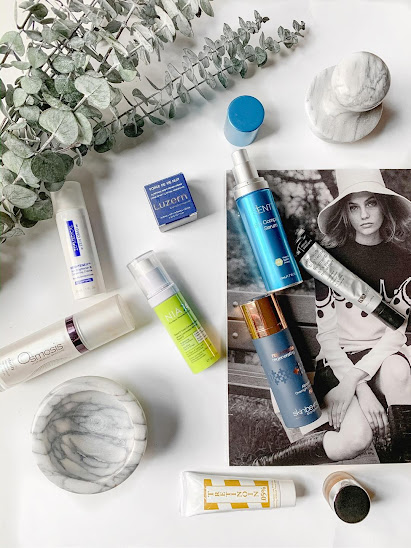More than one way to say Vitamin A
There are many ways to say Vitamin A, as well as many products this popular skin "normalizer" can be found in. Be it a gel or cream formulation this ingredient is a game changer when it comes to skincare! All forms are not created equally though, so you should consult with a skincare professional when deciding which formula best suits your needs! See below for a list of a few different ways to say vitamin A:
Vitamin-A palmitate: Increases collagen, DNA, skin thickness and elasticity. Stability is found to be superior to retinol.
Beta-carotene: Caratinoid precursor to vitamin A. Beneficial for dry and flaking skin.
Retinol: Has demonstrated ability to reduce fine lines and wrinkles. Causes skin cells to act in a more youthful manner. Compared to retinoic acid, retinol has an increased penetration potential. Retinol is less irritating than retinoic acid.
Retinaldehyde: Is a mild retinoid. Can increase epidermal thickness without producing erythema.
Retinyl palmitate: "This retinoid is considered a milder version of retinoic acid. Once on the skin it converts to retinol, which in turn converts to retinoic acid. Secondary reactions such as erythema, dryness or irritation are not associated with retinol palmitate."
Tretinoin/ retinoic acid: Vitamin-A derivative. Demonstrated an ability to alter collagen synthesis, thus increasing dermal hyaluronic acid levels and stimulating fibroblast growth and the extracellular matrix.
Often used for treating the visible signs of aging (fine lines & wrinkles). Can take 6 months to see results. Is associated with a number of adverse effects, including irritation, photosensitivity, skin dryness, redness, and peeling.
*Source:Varinia and Dinardo. Milady Skin Care and Cosmetic ingredients Dictionary Fourth Edition. Clifton Park NY, Cengage Learning Products


Comments
Post a Comment